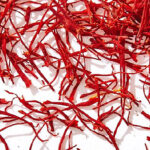
Unveiling “The Golden Effect” – Harnessing Saffron for Menstrual Health
Saffron, famously dubbed as “red gold,” stands as one of the most coveted spices globally, owing to its exquisite nature
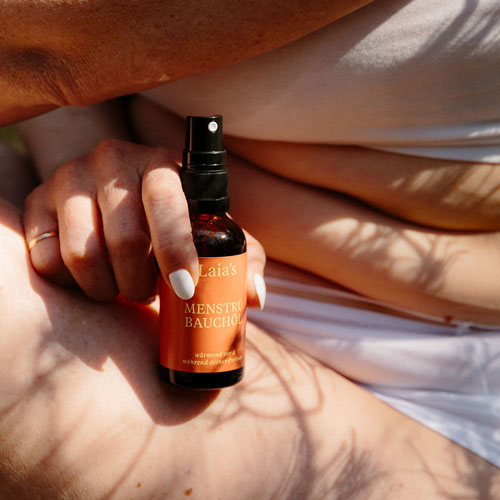
Your cycle influences you and you influence your cycle: Maybe you know it, during your period you are exhausted and need a lot of rest. Only a short time later you feel much better and are thriving again. If you are under a lot of stress, your hormone levels can get out of balance and your cycle is suddenly longer or shorter than normal. But what exactly happens in your body during your cycle? We’ll explain.
What are the Phases of the Menstrual cycle?
Within the menstrual cycle, many different processes take place in your body that also affect your energy level and state of mind. Therefore, you should listen carefully to your body during the individual phases. What signals does your body give you and how should you react to them?
The Menstrual Phase
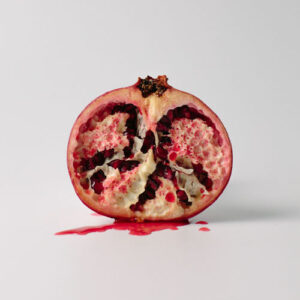 The female cycle begins with the menstrual phase. The first day of the cycle is also the first day of menstruation. A menstrual phase usually lasts about 3 to 5 days. Due to the contraction of the uterus, the functional layer of the uterine lining is gradually shed. The shed mucous membrane is then excreted as a period.
The female cycle begins with the menstrual phase. The first day of the cycle is also the first day of menstruation. A menstrual phase usually lasts about 3 to 5 days. Due to the contraction of the uterus, the functional layer of the uterine lining is gradually shed. The shed mucous membrane is then excreted as a period.
Due to the contraction of the uterus, many women experience mild cramps or pain in the lower abdomen. If the pain is more severe on a regular basis, you should talk to your gynecologist. During your period, many women notice a general feeling of discomfort and feel less productive and sluggish than usual. This may be due to your symptoms, such as PMS, or to your hormone levels, which tend to be low during menstruation.
During your period, you should listen especially carefully to your body and give yourself enough rest to reflect. Plenty of rest and sleep are important now, as this is when regeneration processes take place in your body. For this reason, you should not overtax your body with too strenuous sports, but rather go for a walk or practice relaxed yoga sessions. If you can, you should also reduce your workload during this time.
The Follicular Phase
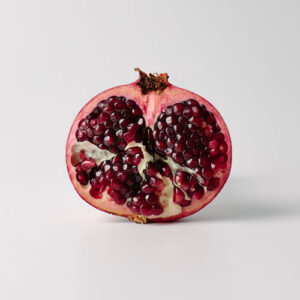 The follicular phase is the period between the end of your period and ovulation. After your period, your oestrogen and progesterone levels are very low. This is why the follicle-stimulating hormone FSH is produced. It makes the lining of the uterus thicker to prepare for implantation of the fertilised egg. In addition, FSH causes the follicle and the egg it contains to mature in the ovary.
The follicular phase is the period between the end of your period and ovulation. After your period, your oestrogen and progesterone levels are very low. This is why the follicle-stimulating hormone FSH is produced. It makes the lining of the uterus thicker to prepare for implantation of the fertilised egg. In addition, FSH causes the follicle and the egg it contains to mature in the ovary.
During this phase, some women who are sensitive to hormone fluctuations tend to have migraines. Some, on the other hand, notice that they have fuller breasts, clearer skin and higher self-esteem during this time. In addition, most women experience an increased libido, which means you have a higher sexual desire in the days around your ovulation.
The follicular phase can also be called the growth phase. You are likely to have a lot of energy during this phase. You should use this energy for rational decisions, lots of sport and new projects. During this phase of the cycle, you are easily motivated and can focus on your daily tasks.
The Ovulation
 At the end of the follicular phase, an egg has matured and can be released. When the hormonal balance is just right, an egg is released for fertilisation. Your ovulation takes place between the 12th and 14th day of the cycle. Once the follicle has burst and released the egg, the egg travels down the fallopian tube for about 24 hours. To become pregnant, the egg must be fertilised within these 24 hours, otherwise it dies.
At the end of the follicular phase, an egg has matured and can be released. When the hormonal balance is just right, an egg is released for fertilisation. Your ovulation takes place between the 12th and 14th day of the cycle. Once the follicle has burst and released the egg, the egg travels down the fallopian tube for about 24 hours. To become pregnant, the egg must be fertilised within these 24 hours, otherwise it dies.
When ovulation occurs, the cervix opens, and the cervical mucus liquefies. This makes it easier for sperm to pass through the cervix and the uterine cavity into the fallopian tube. The sperm survive there for up to five days. In addition, your body temperature rises a little, because in a warmer environment the sperm keep better, and pregnancy becomes more likely.
On the day you ovulate, you’re likely to be particularly prepared to take risks. It’s the perfect day for difficult conversations, like salary negotiations or job interviews. Similarly, ovulation is a good time for productivity, fun and exercise. Especially if you want to have a baby, you should pursue your sex drive in the days around ovulation.
The Luteal Phase
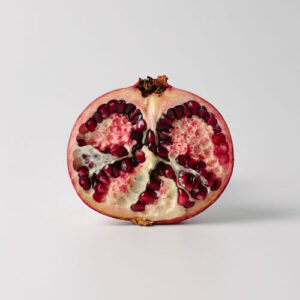 The luteal phase begins when the egg is released. This phase is also called the corpus luteum phase because the egg leaves behind its shell, the corpus luteum, which begins to produce progesterone with the help of the hormone LH to mature the lining of the uterus. The lining is then remodelled so that it is ready to receive a fertilised egg.
The luteal phase begins when the egg is released. This phase is also called the corpus luteum phase because the egg leaves behind its shell, the corpus luteum, which begins to produce progesterone with the help of the hormone LH to mature the lining of the uterus. The lining is then remodelled so that it is ready to receive a fertilised egg.
In your uterine lining, the formation of blood vessels is increased to increase blood flow. Mucous membranes and supportive tissue structures are also formed to create a perfect environment for the fertilised egg. From about the 21st day of the cycle, less progesterone is slowly produced because no egg has been able to implant. The progesterone and oestrogen levels are so low that the lining of the uterus breaks down. This starts the bleeding, and the next menstrual cycle begins.
In the last phase, many women struggle with PMS and hormonally induced acne. In addition, you will have a higher metabolic rate, which will cause you to feel more appetite. Take time during the luteal phase to do routine tasks or finish projects you have started. You can also use this phase of your cycle to reflect and get rid of old habits.

Saffron, famously dubbed as “red gold,” stands as one of the most coveted spices globally, owing to its exquisite nature

Our body, mood, and overall well-being are greatly influenced by hormones. We become acutely aware of this influence during puberty,

Today, let’s embark on a journey through the intricate workings of our bodies and the profound influence of cycle hormones.
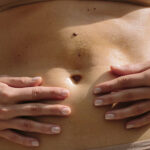
Experiencing sensations of fullness, abdominal pressure, bloating, and discomfort are all characteristics of an unpleasant bloated stomach, often accompanied by

While it is true that men can also suffer from cystitis, the urethra is much shorter in women than in

Migraines are a common and very unpleasant headache disorder. In Germany, around 14.8% of women and 6% of men are
![]()
123 Main Street
City Name, Region
Postal Code, Country
Designed & Developed by e-outbox.